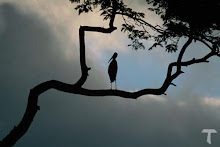I'm reading, rereading and collating - allowing myself to be swept away, whether into Proust's novels or T S Eliot's Four Quartets, John Bayley's musings while tending to Iris Murdoch's descent into Alzheimers. And I'm thinking especially of Abraham Joshua Heschel, whose lecture I attended as a very young person, on the holiness of time. Which puts me in mind of how creativity and time are intertwined. Whether in the story of creation - a meditation which begins Genesis, the Bible's first book. The subject of Proust's In Search of Lost Time. A theme to which Eliot returns again and again in Four Quartets, my favorite poem - a mystical work which also deals with creativity.
Time. Old age is a good time to reflect on Time. One seems to have time for such reflection. Time to read. Time to think. Time to reflect on one's own time past and time future - in the light of time present.
Heschel tells us that the seminal contribution of the Torah's setting aside the Sabbath - as a means of making time holy - is a huge leap from sacred space (temples and the like) to a new dimension - and a new way of prayer and celebration, which includes both the bodily (and its pleasures) as well as the soul, the sacred.
It was Heschel who introduced me to seeing the Holy in this way. In such a way that I have never forgotten his lecture. Never forgotten where I was when I heard it. Never forgotten his effect upon me - an old man, speaking in simple, declarative sentences (so different from Eliot or Proust!) - which held such wisdom. Which seemed to pass straight from his heart (or soul) to mine. As if the words had, themselves, a sacred character - held the very holiness they spoke of. My first brush with a genuinely holy person. I knew it at once! Like you know what love means - when you fall in love for the first time. Holy Mystery delivered to me. A new sense of the sacred. Way beyond books and lectures and prayer in a church.
Now there's nowhere (specific) that this post is going. There's nothing I can say better than the writers and thinkers just flagged (and I'd include the wisdom books of the Bible and John's Gospel and even some mystical passages of Paul). But it sets one to pondering. It makes you want to read, reread and reflect as you read. It unearths memories from one's own life. For me: Reading Bergson's philosophy of time (the spirituality of memory, the meaning of life) - as Proust did - (my last year of college). Being assigned Proust in French... a daunting task for a time-pressed student, struggling to understand French, let alone his run-on sentences. My purchase of Eliot's collected poems in the college bookstore. And later, my first attempt to really understand his "quartets" at a Benedictine monastery also a daunting task - initially. Followed up over the years by many a reading - till I have so much of it memorized. (Still haven't plumbed some of its verses.)
Time and nothingness. That's where I'm headed. On many levels. So much of great literature, great philosophy, great spirituality points us toward these mysterious roots of our experience. If by root we mean the grunt (or Ground) of which Eckhart hints - the mystic described as "the man from whom God hid nothing."
Then there's Shakespeare on Time, a theme to which he returns again and again in his sonnets:
Like as the waves make towards the pebbled shore,Dickens: "It was the best of times. It was the worst of times..."
So do our minutes hasten to their end;
Each changing place with that which goes before,
In sequent toil all forwards do contend.
As Eliot wrote: "There is no end to it..." At least no end to the pondering... the tolling bells (John Donne too)... the waves ... towards the pebbled shore ... our minutes and our end (Shakespeare too - above).
Interesting how the idea of water, waves breaking on a shore and tolling bells, change and death and remembrance are so often tied together when dealt with by great authors:
There is no end to it.... And that's kind of exciting, isn't it?
We shall not cease from exploration
And the end of all our exploring
Will be to arrive where we started
And know the place for the first time. [TS Eliot: Four Quartets]













7 comments:
Great post- with lots of things to reflect on and some of my favourite quotes too. I feel that time is certainly running faster for me this past year- it's quite scary really, but the upside is that I am savouring the beauty of moments much more !
Blessings
What a wonderful comment, Phil! I find time doing two opposite things. Yes, faster and faster. But at the same time the ability to savor, as you say, the beauty of moments. Even simple routine tasks take on a timeless peaceful quality.
Bless you, my dear!
I wonder if you had seen this article on time. http://blog.oup.com/2013/10/does-time-pass-philosophy-time/
and beside my previous comment, there is the science of measurement quite remarkably changed by removing some assumptions we usually consider essential: https://www.simonsfoundation.org/quanta/20130917-a-jewel-at-the-heart-of-quantum-physics/
Thank you for reading and commenting, Bob! I will pursue your links. And ponder more...
Hugh McLennan describes time in The Watch that Ends the Night as ‘the cloud in which we live while the breath is in us.’
Thanks again, Bob, for a tantalizing quote! (It's intriguing when a post sparks such attention. You have ennobled the post!)
Post a Comment